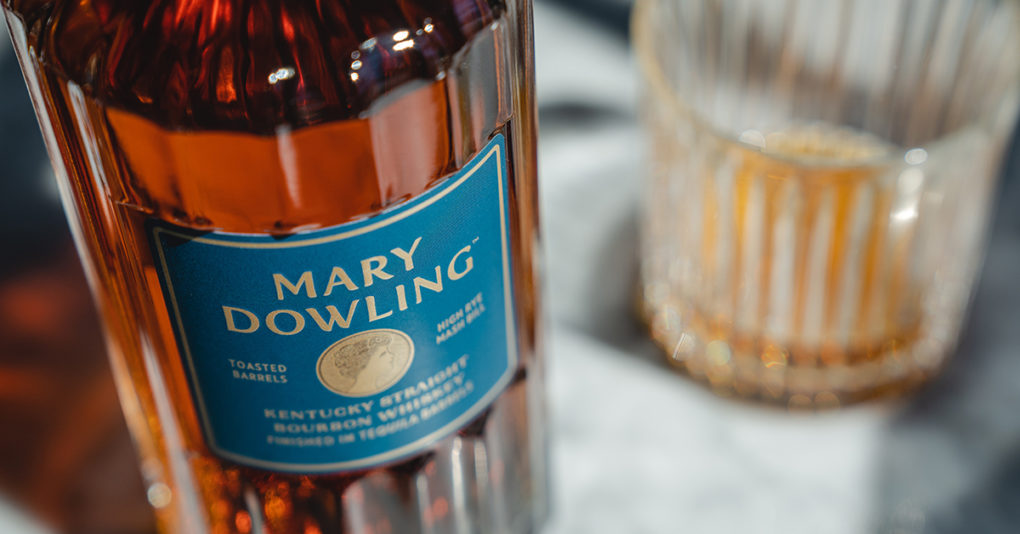
Mary Dowling Whiskey Company, which debuts today in 12 U.S. markets, will feature two distinctive expressions – Tequila Barrel and Double Oak Barrel – inspired by the underrecognized “mother of Bourbon,” Mary Dowling. The expressions run from $75 to $130, and are completely different from Rabbit Hole or any other Pernod-Ricard whiskey offerings, according to Zamanian.
The clinical psychologist-turned-distiller first aligned with Pernod Ricard when the global spirits company went on a whiskey acquisition streak in 2019, bringing TX, Smooth Ambler, and Rabbit Hole into its portfolio. The latter was founded in 2012 by Zamanian, who remains at the helm of operations. In 2019, with its freshly built state-of-the-art distillery, Rabbit Hole fit squarely into Pernod Ricard’s division formed to focus on “fast-growing, high-potential” craft brands like Del Maguey Mezcal, which it acquired in 2017.
But since last year Pernod Ricard has put even more focus on American whiskey through its American Whiskey Collective, a business unit dedicated to the company’s American whiskey portfolio that will pursue growth by investing in the “new fashioned” brands’ innovation. The decision comes at a time when American whiskey sales are on the rise: up 10.5% totalling $5.1 billion in 2022, and +3.3% in the last 52 weeks off-premise according to NIQ. The group acquired a majority stake in peanut butter flavored Skrewball whiskey in March, a move in line with its goal to bolster its portfolio with premium, non-traditional challenger whiskey brands.
Now it’s releasing Mary Dowling Whiskey Company through Castle Brands, a Pernod Ricard arm that develops and markets premium and super premium brands, such as Goslings Rum. The newest addition to the whiskey portfolio is made at the Lousiville facility that Zamanian built, which he described as a genuine craft distillery built to scale. With an 8,000-gallon cooker and fermentation tanks, the distillery can produce up to 23 barrels at a time, which he calls “true small batch expressions.” However, the distillery can collectively scale up to approximately 27,000 barrels a year. That agility provides a competitive advantage that allows the distillery to “contribute to the evolution of American whiskey,” he said.
Named after a successful female distiller in the male-dominated world of pre-prohibition bourbon, Mary Dowling Whiskey Co. is positioning itself as a tribute to an individual whose accomplishments have been under-recognized, said Zamanian. He added that it also honors the partnership between Dowling and her husband, who made Dowling a partner at his distillery before his death.
“When you think about it, it’s quite remarkable how little recognition Mary Dowling has received in the annals of American Whiskey history,” he said. “So, from a branding perspective, I hope it to be an inspirational story that not only helps us move towards a greater appreciation of women as full partners but also towards a more equitable industry landscape.”
That appreciation, it should be noted, does not in this case include a female distiller or owner itself. However, the release comes at a time when there is rising availability of spirits or whiskeys owned or distilled by women, who still experience the challenges of not receiving equitable treatment and access to resources as men in the industry. Women’s consumption of whiskey lags compared to vodka, tequila and RTDs, according to the IWSR, presenting an opportunity that major brands have often tried to take advantage of with mixed results. Zamanian argues the branding is not designed for any specific type of consumer demographic.
Other global spirit companies have made similar investments recently in attempts to increase their share in the ultra American whiskey segment, which is led by brands such as Bacardi’s Angel’s Envy, Whistle Pig and Brown-Forman’s Woodford Reserve. Campari Group boosted its high end Kentucky bourbon portfolio by taking a majority stake in Wilderness Trail Distillery last year, a move designed to expanded its production capacity and inventory to meet growth plans for its premium bourbons, such as the high potential Whiskey Barons range, which were capped due to capacity constraints.